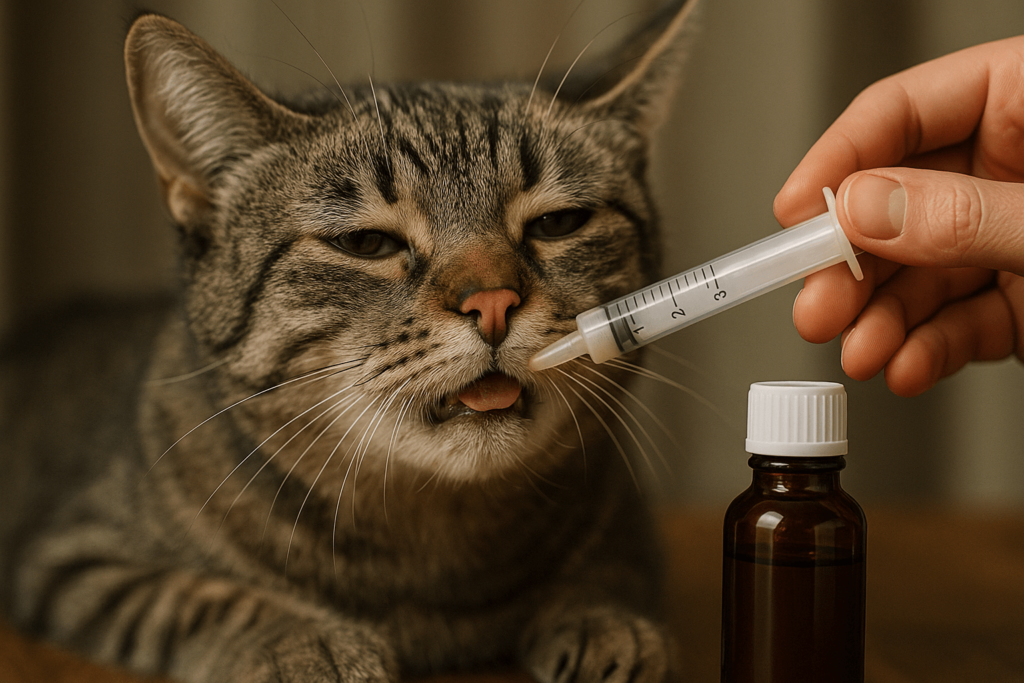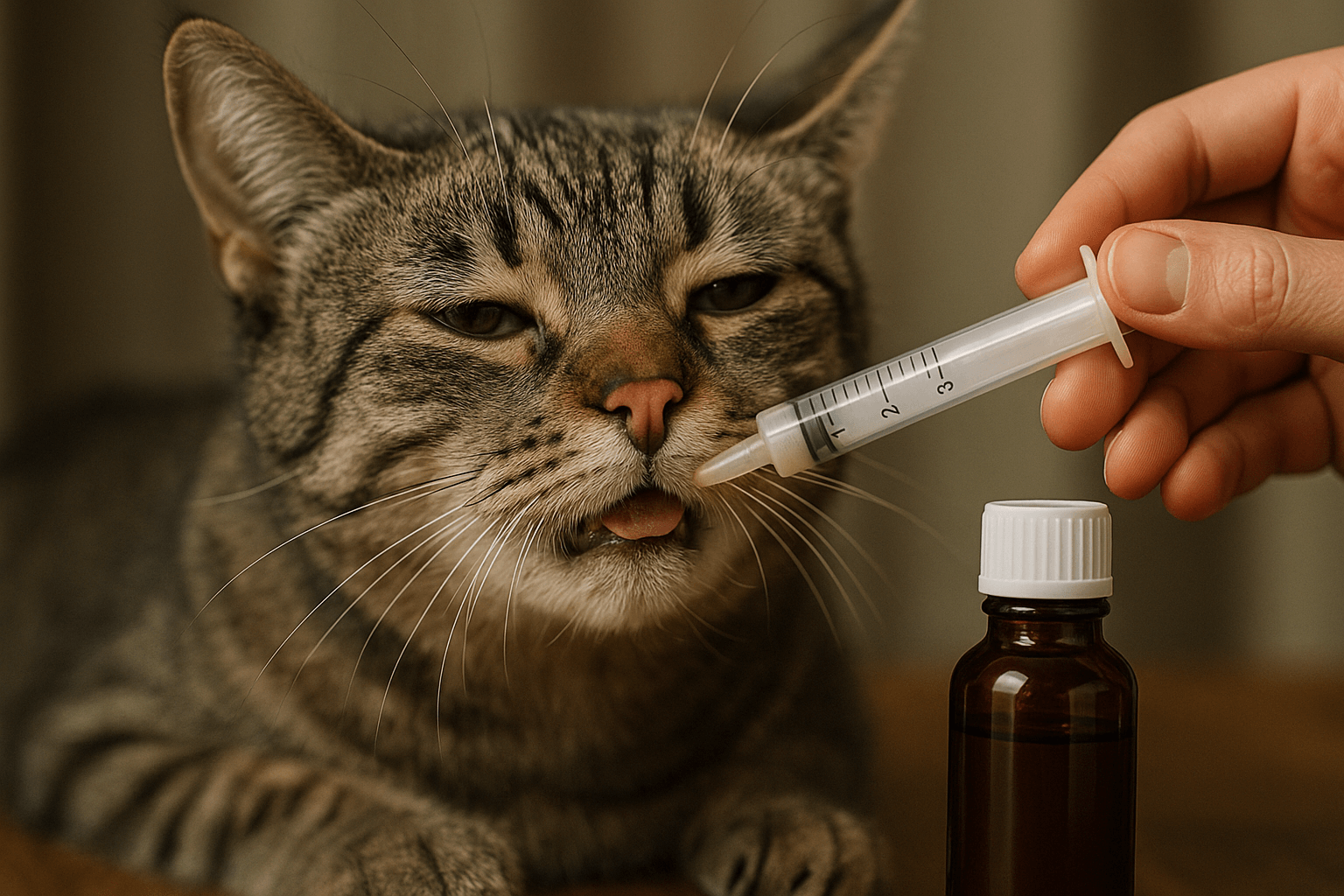Cat Respiratory Infection Medicine: What You Need to Know to Help Your Feline Breathe Again
When your cat sneezes, wheezes, or stares at you with watery eyes, it’s not just a cold—it’s a cry for help. Respiratory infections in cats are common, contagious, and often more serious than they appear. Left untreated, they can lead to pneumonia, chronic sinusitis, or even life-threatening complications. Understanding the right medicine—and knowing when to act—isn’t optional. It’s urgent. This guide breaks down everything you need to know about cat respiratory infection medicine, from diagnosis to recovery, so you can give your feline the care they deserve.
Why Cat Respiratory Infections Are More Than Just a Runny Nose
A cat’s respiratory system is delicate. What looks like a minor sniffle can be the first sign of something deeper. These infections don’t just cause discomfort—they disrupt sleep, appetite, and emotional well-being.
Viral Origins Are Common:
Most cases stem from feline herpesvirus (FHV-1) or calicivirus (FCV)—highly contagious and often lifelong carriers.Bacteria Can Complicate Things:
Secondary infections like Chlamydophila felis or Bordetella can turn a simple cold into a prolonged illness.Symptoms Are Subtle at First:
Sneezing, mild eye discharge, and slight lethargy may seem harmless—but they escalate quickly.Kittens and Seniors Are Most Vulnerable:
Their immune systems are weaker, making recovery slower and complications more likely.Stress Triggers Outbreaks:
Moving, boarding, or even a new pet can reactivate dormant viruses in carrier cats.
Ignoring early signs doesn’t make it go away—it gives the infection time to settle in. Early intervention is the difference between a few days of discomfort and weeks of suffering.

Common Types of Cat Respiratory Infection Medicine
Not all medicine is created equal. The right treatment depends on the cause, severity, and your cat’s overall health. Here’s what veterinarians commonly prescribe:
Antibiotics:
Used for bacterial infections like Chlamydia or Mycoplasma. Doxycycline and azithromycin are top choices due to their effectiveness and safety profile.Antiviral Medications:
For herpesvirus, antivirals like famciclovir can suppress replication and reduce symptom severity—especially in chronic cases.Nasal Decongestants:
Saline sprays or gentle steam therapy help clear nasal passages; oral decongestants are rarely used due to feline sensitivity.Eye Ointments and Drops:
Antibiotic or antiviral ophthalmic treatments (e.g., idoxuridine or terramycin) treat conjunctivitis and corneal ulcers.Immune Support Supplements:
L-lysine, interferon, or probiotics may be recommended to bolster natural defenses during recovery.
Never self-medicate. Many human medications are toxic to cats. Only use what your vet prescribes—and never skip doses, even if your cat seems better.
Check this guide 👉Cat Lung Infection: Best 7 Expert Tips!
Check this guide 👉Antibiotic for Cat Ear Infection: Best 7 Expert Tips!
Check this guide 👉Cat Ear Infection with Black Discharge: Best 7 Expert Tips!
| Medication Type | Purpose and Key Benefits |
|---|---|
| Doxycycline | Broad-spectrum antibiotic effective against Chlamydia and Mycoplasma; well-tolerated in cats. |
| Famciclovir | Antiviral that reduces herpesvirus shedding and speeds healing of eye and nasal symptoms. |
| Azithromycin | Used for bacterial infections and some atypical pathogens; once-daily dosing improves compliance. |
| Ophthalmic Ointments (e.g., Terramycin) | Treats conjunctivitis and prevents corneal ulcers caused by viral or bacterial eye involvement. |
| L-Lysine Supplements | May reduce herpesvirus replication and frequency of flare-ups; often used long-term in chronic carriers. |
How to Administer Medicine to a Reluctant Cat
Giving medicine to a cat is an art. If your cat resists, you’re not failing—you just need the right technique.
Use Pill Pockets or Hide in Wet Food:
Soft treats designed to conceal pills work wonders. Crushed pills mixed into a small spoonful of tuna or chicken broth can be effective.Pill Guns Are Your Friend:
A plastic pill gun lets you place the tablet at the back of the throat without risking bites or scratches.Liquid Medications with a Syringe:
Gently lift the chin, insert the syringe beside the cheek, and slowly dispense. Don’t force it—let your cat swallow naturally.Transdermal Gels (When Available):
Some medications (like methimazole or certain antivirals) can be compounded into gels applied to the inner ear—ideal for pill-averse cats.Stay Calm and Reward Immediately:
Cats sense stress. Speak softly, hold gently, and follow every dose with praise, cuddles, or a favorite treat.
Consistency matters more than perfection. Even if it takes 10 minutes, getting the full dose in is better than half and a tantrum.
When to Seek Emergency Care for a Cat with a Respiratory Infection
Not every sneeze needs an ER visit—but these signs mean your cat is in danger.
Stopped Eating or Drinking for 24+ Hours:
Cats can develop hepatic lipidosis (fatty liver disease) within days of not eating—this is life-threatening.Severe Nasal Discharge or Coughing:
Thick, green, or bloody discharge signals advanced infection or pneumonia.Open-Mouth Breathing or Gasping:
Normal cats breathe through their nose. Mouth breathing means they’re struggling to get oxygen.Lethargy, Collapse, or Unresponsiveness:
These are signs of systemic illness, not just a cold.Swelling Around the Eyes or Face:
Could indicate a severe abscess or allergic reaction requiring immediate treatment.
If you see any of these, go to the vet immediately. Delaying care can turn a treatable infection into a tragedy.
The Role of Environment in Recovery
Medicine heals—but environment supports. Your home is part of the treatment plan.
Humidify the Air:
Run a humidifier or bring your cat into the bathroom while you shower. Moist air loosens mucus and soothes irritated airways.Keep the Area Clean:
Wipe away eye and nose discharge with a warm, damp cloth to prevent crusts and irritation.Isolate from Other Pets:
Respiratory infections spread easily. Keep your sick cat separate until cleared by your vet.Warm Food Enhances Appetite:
Warming wet food releases aroma, which helps cats with blocked noses smell and eat again.Minimize Stress:
Avoid loud noises, visitors, or changes in routine. Stress suppresses immunity and prolongs illness.
A quiet, warm, clean space isn’t luxury—it’s medicine.
Preventing Future Respiratory Infections
Once your cat recovers, prevention becomes your new priority.
Vaccinate Regularly:
The FVRCP vaccine protects against herpesvirus, calicivirus, and panleukopenia. Keep boosters on schedule.Limit Exposure to Strays or Shelters:
These are hotspots for respiratory pathogens. Avoid contact unless necessary.Reduce Household Stressors:
Use pheromone diffusers (like Feliway), provide vertical space, and maintain consistent routines.Boost Immunity with Nutrition:
High-quality, protein-rich diets support immune function. Consider omega-3 supplements for anti-inflammatory benefits.Schedule Annual Checkups:
Early detection of carriers or chronic conditions means faster intervention next time.
Prevention isn’t about perfection—it’s about consistency. One missed vaccine, one unclean litter box, one stressful move—can be enough to trigger a relapse.
Common Mistakes Cat Owners Make When Treating Respiratory Infections
Even well-meaning owners can unintentionally harm their cats. Avoid these pitfalls:
Using Human Cold Medicine:
Acetaminophen, ibuprofen, and pseudoephedrine are deadly to cats—even in tiny doses.Stopping Antibiotics Early:
If symptoms improve, you might be tempted to quit. But incomplete courses breed resistant bacteria.Relying on Home Remedies Alone:
Honey, garlic, or essential oils may sound natural—but they’re ineffective and often toxic.Ignoring Carrier Status:
Many cats carry herpesvirus for life. Just because they’re symptom-free doesn’t mean they can’t spread it.Waiting Too Long to See a Vet:
Cats hide illness until it’s critical. If you’re unsure, call your vet. Better safe than sorry.
Your cat doesn’t have words. They have symptoms. Learn to read them.
FAQ: Cat Respiratory Infection Medicine
Can a cat recover from a respiratory infection without medicine?
Mild cases may resolve on their own, but most need support. Without treatment, secondary infections can develop, turning a simple cold into pneumonia.
Is cat respiratory infection contagious to humans?
No. Feline herpes and calicivirus are species-specific. You can’t catch it—but you can spread it between cats on your clothes or hands.
How long does it take for cat respiratory medicine to work?
Antibiotics show improvement in 48–72 hours. Antivirals may take 5–7 days. Full recovery can take 1–3 weeks depending on severity.
Can I use saline drops for my cat’s stuffy nose?
Yes—sterile, preservative-free saline nasal drops (like those for infants) are safe and helpful. Use a dropper gently in each nostril.
Why does my cat keep getting respiratory infections?
Likely a carrier of herpesvirus. Stress, poor immunity, or overcrowding can trigger recurrent flare-ups. Long-term management is key.
Breathe Easy Again—Because Your Cat Deserves It
A cat’s breath should be quiet. Their nose, clear. Their eyes, bright. When those signs fade, it’s not just a sniffle—it’s a call for your courage. You don’t need to be a veterinarian to save your cat’s life. You just need to act. To notice. To listen.
The right medicine, given with patience and care, doesn’t just clear mucus—it restores joy. It brings back the purrs. The head-butts. The curl beside you at night.
This isn’t about fixing a symptom.
It’s about honoring a life that trusts you completely.
Can I Give My Cat Midol? Best 7 Expert Tips! – Learn the risks, symptoms, and safe alternatives to keep your cat healthy and avoid toxic reactions.
Can I Give My Dog Midol? Best 7 Expert Tips! – Discover the risks, safe alternatives, and expert advice to keep your dog safe from accidental poisoning.
Maximum Weight for Cats on Planes: Best 7 Expert Tips! – Learn airline policies, tips to stay compliant, and ensure safe travels for your feline friend.
Max Weight for Dogs on Planes: Best 7 Expert Tips! – Discover airline weight limits, safe travel tips, and solutions for flying with your dog stress-free.





